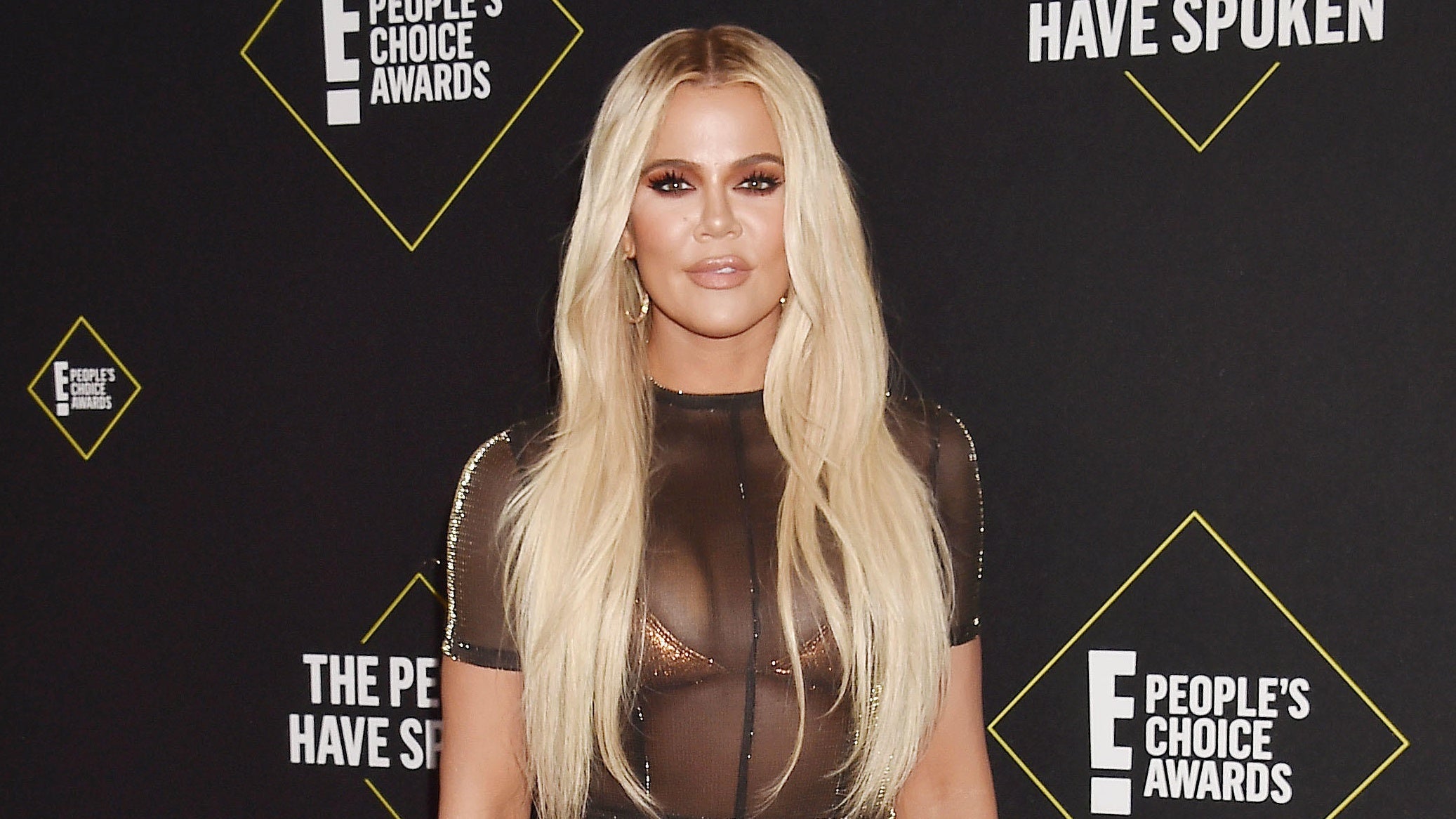We’ve never felt worse about the way we look – and who’s to blame?
The furore over an unedited photograph of Khloe Kardashian shines a light on social media’s warped values which are having a horribly negative impact on mental and physical health, writes Janet Street-Porter


Reality star Khloe Kardashian has offered a long justification for trying to remove an unedited picture of herself from social media. The casual image of the reality star in a bikini looked fresh and natural – too natural for Khloe’s taste. She claimed the photo, taken by a family member, infringed her copyright and publication was detrimental to her work and mental health.
How can an unposed smiley photo of an attractive young woman be deemed so offensive and damaging? The ensuing furore shines a light on the warped values of social media, values which are having a horribly negative impact on mental and physical health. Eating disorders, self-harming and body dysmorphia are all soaring as impressionable young people try to emulate the images of perfection streamed constantly on social media.
Khloe posted a statement explaining her actions claiming that, “the pressure to be perfect is too much to bear”, adding, “I love a good filter, good lighting and an edit here and there... how I choose to look and what I want to share is my choice.” Yes, but those choices are dictated by the simple need to drive online business through endorsements and sell products, not simply gain new friends.
The Kardashian family are huge influencers with millions of followers, determined to protect their collective and individual brands by never releasing images which show them in a less than perfect light. In the process they have become mega-wealthy – Khloe’s sister Kim was declared a billionaire a few days ago.
The Khloe meltdown sums up the dilemma facing educators, doctors, mental health experts and legislators when dealing with eating disorders and low self-esteem. Fans will claim that the Kardashians are role models, self-made inspirational women who choose how they wish to present themselves. In the real world, we can never be that perfect, smooth skinned, glossy, and perfect. But it’s hard to ignore the link between artifice and commercial and social success.
The current pandemic has seen a huge rise in eating disorders and a decline in mental health. We’re gorging on takeaways, sitting on sofas, exercising less, unable to go to the gym or meet friends.
Six in 10 adults in the UK are overweight or obese, and there are countless channels pushing our new religion of overeating: celebrity chefs, travel programmes, gorgeous food in adverts, glossy meal deals with succulent roasts and acres of potatoes at bargain prices. It’s impossible to escape food, and the pervasive “diet culture” that attempts to deal with the consequences of excessive consumption.
Meanwhile, bullying is soaring – and much of it focuses on appearance. How can the government help change attitudes, encourage and celebrate diversity, while pushing us towards healthier choices?
This week, the Commons committee for Women and Equalities published an important report on body image. It couldn’t be more timely – two-thirds of children and almost as many adults say they are unhappy about their body image most of the time. A staggering 87 per cent of 11-19-year-olds with mental health issues use social media every day, one in four spending over four hours on it.
They are sucked into a world where perfection is king and queen, where there’s a strange uniformity among the leading players. Big lips, big eyebrows, long hair, curves but no wobbly bits. Unnaturally smooth, lightly tanned skin. Do you ever see anyone looking like that in the supermarket or walking down your street?
The committee wants to change how physical health is measured, requesting medics stop using the Body Mass Index (BMI) as a measure of wellbeing and adopt a “health at every size” approach instead. They want the government to scrap plans to put calorie content on menus in restaurants, cafes and takeaways, saying it will only encourage more people to have an unhealthy attitude to what they eat.
Currently, the government spends just 96p per person on research into eating disorders, when treatment costs £15bn a year. The report recommends spending £9 per person on research into eating disorders and wants an education strategy which focuses on a “whole school” approach with many different body shapes and sizes taken into account.
I know from personal experience how useless BMI is. At six foot tall, I’m a size 14, eat healthily and exercise regularly. A couple of years ago, my NHS doctor weighed me and pronounced me obese. Luckily, I laughed it off. But every woman I know is on a diet or an eating regime, denying themselves food. Women are having cosmetic procedures in their fifties, terrified that if they look wrinkly they’ll be passed over for jobs.
Obsession with body image has a terrible grip on modern society, even though we often laugh it off as trivial. The consequences can be devastating, but the government seems unable to construct joined-up policy. Advertising must be clearly marked if images have been digitally altered. Dealing with this crisis requires a determined approach – and as the prime minister has demonstrated he has his own issues with food, you might expect he’d be sympathetic.
But is he? Last year, the government promised it would ban ads for junk food and takeaways before 9pm online and on television to try and combat child obesity. Boris Johnson is about to renege on that promise, in spite of receiving pleas from Jamie Oliver and over 90 doctors and health experts. Boris has been determined to shed his excess bulk but he might remember that most of us can’t afford a personal trainer or £10,000 worth of “healthy” meals delivered from an expensive supermarket.
Time for a rethink.
Join our commenting forum
Join thought-provoking conversations, follow other Independent readers and see their replies
Comments